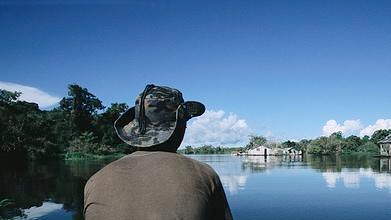These are the stakes: In the next 40 years, the Earth’s population will expand from 7 billion to 9 billion people, and they will all count on the planet to provide them with energy, water, and food. The course we are on right now will make that extremely difficult.
The United Nations Conference on Sustainable Development, known as Rio+20, offers an opportunity to build the planning and policy structures, measurement systems, and ambition that we need to prepare for the future and to deal with the converging food, water, and energy crises that we face today.
Around the world, there is a growing understanding that to make progress we must give equal attention to the economic, environmental, and social pillars of sustainable development. The conference—expected to draw 75,000 people including over 100 heads of state and thousands of people from the private sector to Rio de Janeiro in June—offers the following chances for the global community:
- To harness the power of inclusive green growth as the pathway to sustainable development;
- To move beyond just GDP and incorporate natural capital and ecosystem services into national wealth accounting;
- To scale up new integrated public and private sector approaches to cityscapes, landscapes, and oceans.


